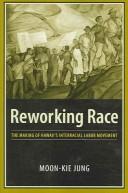| Listing 1 - 2 of 2 |
Sort by
|
Periodical
ISSN: 19441347 Year: 2006 Publisher: Honolulu, Hawaii : USDA, Natural Resources Conservation Service
Abstract | Keywords | Export | Availability | Bookmark
 Loading...
Loading...Choose an application
- Reference Manager
- EndNote
- RefWorks (Direct export to RefWorks)
Conservation of natural resources --- Conservation of natural resources. --- United States. --- Hawaii. --- Conservation of resources --- Natural resources --- Resources conservation, Natural --- Environmental protection --- Natural resources conservation areas --- Natural resources conservation --- Conservation --- NRCS Pacific Islands Area --- Pacific Islands Area NRCS --- Chava --- Gavaĭi --- Gavaĭskie Ostrova --- Gavaĭtæ --- H.I. --- HA --- Hahuai --- Hauaiʻi --- Haṿai Inzlen --- Havaiji --- Havajai --- Havajas --- Hawai-sh --- Hawaii Eyaleti --- Hawaii-Inseln --- Hawaii (Kingdom) --- Hawaii (Republic) --- Hawaii (State) --- Hawaii --- Hawaii (Territory) --- Hawaiian Islands --- Hawaiju --- Hawaje --- HI --- Khavai --- Kingdom of Hawaiʻi --- Mokuʻāina o Hawaiʻi --- Republic of Hawaii --- Shtat Hava --- State of Hawaii --- Territory of Hawaii --- Tlahtohcāyōtl Hahuai --- Xiaweiyi --- Xiaweiyi Zhou

ISBN: 1282897705 9786612897702 0231509480 9780231509480 9781282897700 0231135343 9780231135344 6612897708 Year: 2006 Publisher: New York Columbia University Press
Abstract | Keywords | Export | Availability | Bookmark
 Loading...
Loading...Choose an application
- Reference Manager
- EndNote
- RefWorks (Direct export to RefWorks)
In the middle decades of the twentieth century, Hawai'i changed rapidly from a conservative oligarchy firmly controlled by a Euro-American elite to arguably the most progressive part of the United States. Spearheading the shift, tens of thousands of sugar, pineapple, and longshore workers eagerly joined the left-led International Longshoremen's and Warehousemen's Union (ILWU) and challenged their powerful employers. In this theoretically innovative study, Moon-Kie Jung explains how Filipinos, Japanese, Portuguese, and others overcame entrenched racial divisions and successfully mobilized a mass working-class movement. He overturns the unquestioned assumption that this interracial effort traded racial politics for class politics. Instead, he shows how the movement "reworked race" by developing an ideology of class that incorporated and rearticulated racial meanings and practices. Examining a wide range of sources, Jung delves into the chronically misunderstood prewar racisms and their imperial context, the "Big Five" corporations' concerted attempts to thwart unionization, the emergence of the ILWU, the role of the state, and the impact of World War II. Through its historical analysis, Reworking Race calls for a radical rethinking of interracial politics in theory and practice.
Working class --- Labor --- Diversity in the workplace --- Cultural diversity in the workplace --- Cultural diversity in workforce --- Diversity in the workforce --- Diversity in the work place --- Multicultural diversity in the workplace --- Multicultural workforce --- Workforce diversity --- Multiculturalism --- Personnel management --- Labor and laboring classes --- Manpower --- Work --- Commons (Social order) --- Laboring class --- Labouring class --- Working classes --- Social classes --- History. --- Employment --- International Longshoremen's and Warehousemen's Union --- International Longshore and Warehouse Union --- International Fishermen and Allied Workers of America --- Pacific Maritime Association --- I.L.W.U. --- ILWU --- International Longshoremen & Warehousemen's Union --- International Longshoremen and Warehousemen's Union --- International Longshoremen's & Warehousemen's Union --- International Longshoremen's and Warehousemen's Union. --- Hawaii --- Chavaē --- Gavaĭi --- Gavaĭskie Ostrova --- Gavaĭtæ --- H.I. --- HA --- Hahuai --- Hauaiʻi --- Haṿai Inzlen --- Havaiji --- Havajai --- Havajas --- Hawai-shū --- Hawaii Eyaleti --- Hawaii-Inseln --- Hawaii (Kingdom) --- Hawaii (Republic) --- Hawaii (State) --- Hawaii (Ter.) --- Hawaii (Territory) --- Hawaiian Islands --- Hawaiju --- Hawaje --- HI --- Khavai --- Kingdom of Hawaiʻi --- Mokuʻāina o Hawaiʻi --- Republic of Hawaii --- Shtat Havaï --- State of Hawaii --- Territory of Hawaii --- Tlahtohcāyōtl Hahuai --- Xiaweiyi --- Xiaweiyi Zhou --- Χαβάη --- Хаваји --- Хаваи --- Штат Гаваї --- Гавайтæ --- Гавайи --- Гаваї --- האוואי --- הוואי --- ハワイ --- ハワイ州 --- 夏威夷 --- 夏威夷州 --- 하와이 --- 하와이주 --- Race relations. --- ILWU (International Longshoremen's and Warehousemen's Union)
| Listing 1 - 2 of 2 |
Sort by
|

 Search
Search Feedback
Feedback About UniCat
About UniCat  Help
Help News
News